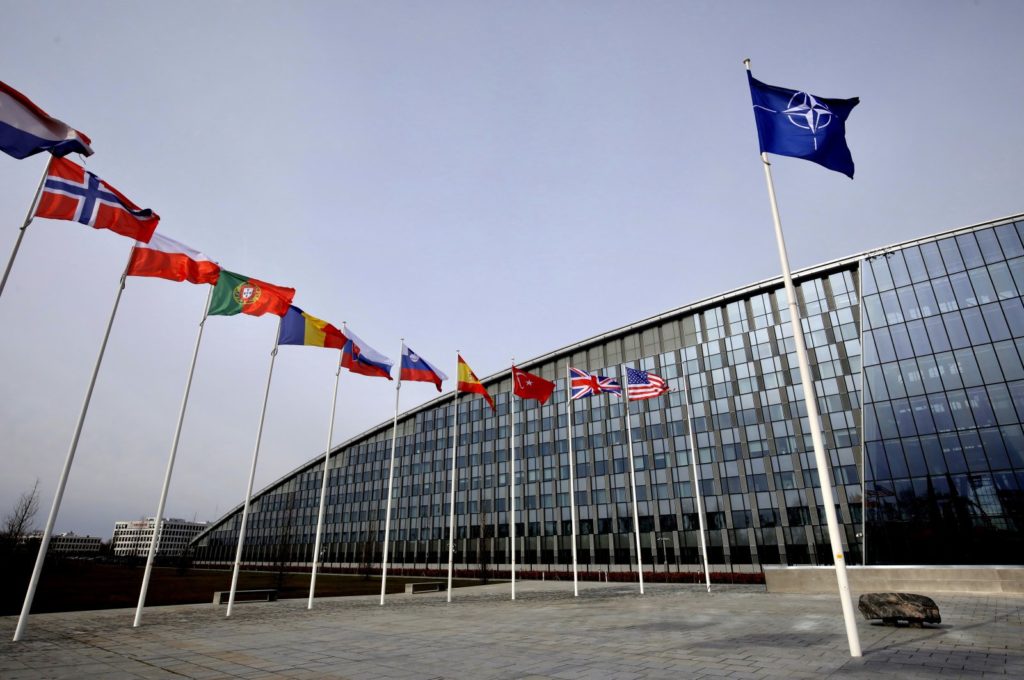There are several questions and challenges about the role of NATO since the end of the Cold War. Some countries, which had a vital position for the Atlantic Treaty, are now following a totally different path in both their internal and foreign policy making.
On the other hand, new developments in foreign policy dynamics in NATO neighbourhood could also justify new memberships.
One interesting debate is the place of Turkey and Israel within the North Atlantic Alliance. One can make the following question: Why a quasi-autocratic ruled Turkey remains a NATO Member State while a value driven country like Israel is out?
It is almost two decades since Recep Tayyip Erdoğan became Turkey’s strongest political actor. All started with a then committed Prime Minister bridging and enhancing Turkey’s challenging relations with the European Union seeking, ultimately, the golden prize - an EU membership.
However, corruption, freedoms obliteration or democratic backlashing followed by an unprecedented purge across Turkey’s military, judicial and bureaucratic dimensions after a failed coup, helped to flatten what Erdogan had achieved over one decade at the eyes of Turkey’s international partners.
After Turkey’s announcement in July 2019 about the purchase of Russia’s S-400 missile system, the already fading goodwill towards Erdogan further erode next to its NATO partners. The United States called it a brake of trust and removed Turkey from the F-35 development program with further sanctions being still weight.
Then came summer of 2020 with Turkey using the Mediterranean to flex its military muscles while “ridding old narratives” and making war threats against an EU and NATO Member - Greece. After months of tension and escalation, the situation started to evolve to a relative normality.
However, the damage was done. Trust was broken and many publicly stated that this Turkey - Erdogan’s Turkey - does not comply with the basic and fundamental requisites to be part of a democratic and values driven Organization. These arguments raised different questions about Turkish membership in NATO.
It is true that Turkey’s powerful military - NATO’s second largest army with over 350,000 military personnel and vast military capabilities - and unique geo-strategic position incline everyone not to take the country of the Alliance. In fact, this would only prompt fears of a Turkey aligned with Russia and/or Iran. A Turkey flying solo would also mean a potential new member of the “Nuclear Club”. Finally, the European Union and NATO would have an extremely difficult eastern border to engage with.
Israel in its own way, and with its own particularities, is a different case. In 2016, and only after a Turkish lift over a six year veto, Israel was allowed to launch its Liaison Office at NATO’s headquarters and later, in 2017, formally sign a cooperation agreement with the Organization.
Since then, the cooperation between NATO and Israel has increased sustained in multiple tangible cooperation action. Military exercises, cyber warfare and counter-intelligence, are some of the examples of the cooperation between both parts. Furthermore, Israel has launched and strengthened diplomatic initiatives with Greece and Cyprus, following the discovery of gas in the eastern Mediterranean Sea. This was done despite the old positions of the latest regarding the Middle East Peace Process (MEPP), making it clear that the MEPP wouldn’t be a burden for a membership position of Israel in NATO.
The recent Abraham Accords between Israel and several Arab countries could also trigger the idea that in admitting the State of Israel, NATO would be playing globally, on one hand, and on the other hand, open the doors to further members around the World.
With a solid democracy and values driven society, Israel military capabilities would fit perfectly the present and future needs of the Alliance. The military quality hardware, technology or intelligence would enhance NATO’s existing capabilities. In a moment where NATO’s budget burned share is at the centre of many debates, Israel’s military budget is near the singular value of 4.5% GDP.
To be part of an Alliance, also means that one loses partial autonomy and such issue is remarkably pivotal for a nation that faces singular and constant security challenges. One of the core, if not the main, debates about an Israel NATO membership, will always be focus on NATO’s Article 5 (collective defence) activation over a potential attack from Iran or any of Iran’s proxies, such as the Hezbollah. The odds of such an attack are high and such an event would put the Alliance in a difficult position as this could prompt an armed conflict of years in the Middle East and even some regions in North Africa.
It is also clear that the full membership would not depend only NATO members, especially if Turkey will not veto that same membership, but also in Israel willingness in joining it.
In the balance, if one looks to NATO core values of: “individual liberty, democracy, human rights and the rule of law”; with three essential core tasks: “collective defence, crisis management and cooperative security”; one sees here the natural place for Israel to be part of.
On the opposite side, Turkey’s membership, despite its overwhelming present issues, should remain unchanged even if Ankara will suffer different sanctions from NATO member countries as the US and face high political pressure from Paris or London.
Looking at future picture, it is time to start building on Israel’s full membership to NATO.
Alexandre Krauss | Foreign Affairs and Defence Senior Advisor
@AlexandreKrausz
Nuno Wahnon | Consultant on EU Affairs
@nwahnon

